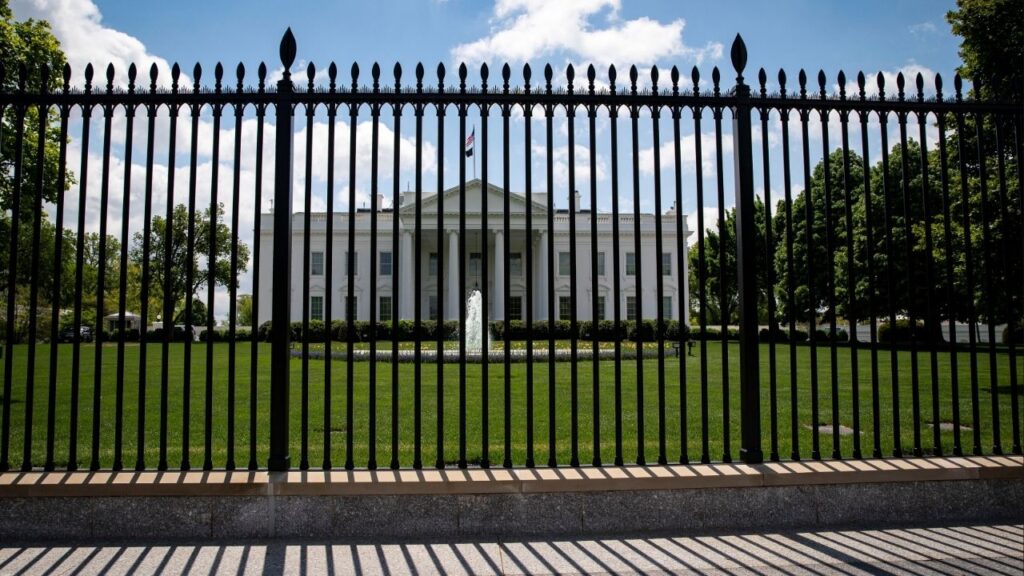Climate change will reduce global income by about 19% in the next 25 years according to the study. (AP File)

- The economic impact could double by 2100.
- The poorest regions will suffer the most.
- The study projects a median income reduction of 11% for the U.S..
Share
|
Getting your Trinity Audio player ready...
|
Climate change will reduce future global income by about 19% in the next 25 years compared to a fictional world that’s not warming, with the poorest areas and those least responsible for heating the atmosphere taking the biggest monetary hit, a new study said.
Climate change’s economic bite in how much people make is already locked in at about $38 trillion a year by 2049, according to Wednesday’s study in the journal Nature by researchers at Germany’s Potsdam Institute for Climate Impact Research. By 2100 the financial cost could hit twice what previous studies estimate.
“Our analysis shows that climate change will cause massive economic damages within the next 25 years in almost all countries around the world, also in highly-developed ones such as Germany and the U.S., with a projected median income reduction of 11% each and France with 13%,” said study co-author Leonie Wenz, a climate scientist and economist.
Impact on Global Growth
These damages are compared to a baseline of no climate change and are then applied against overall expected global growth in gross domestic product, said study lead author Max Kotz, a climate scientist. So while it’s 19% globally less than it could have been with no climate change, in most places, income will still grow, just not as much because of warmer temperatures.
For the past dozen years, scientists and others have been focusing on extreme weather such as heat waves, floods, droughts, storms as the having the biggest climate impact. But when it comes to financial hit the researchers found “the overall impacts are still mainly driven by average warming, overall temperature increases,” Kotz said. It harms crops and hinders labor production, he said.
In the United States, the southeastern and southwestern states get economically pinched more than the northern ones with parts of Arizona and New Mexico taking the biggest monetary hit, according to the study. In Europe, southern regions, including parts of Spain and Italy, get hit harder than places like Denmark or northern Germany.
Only Arctic adjacent areas — Canada, Russia, Norway, Finland and Sweden — benefit, Kotz said.
Related Story: Vital Climate Tool or License to Pollute? The Battle Over CA’s First ...
Impact on Poor Countries
It also means countries which have historically produced fewer greenhouse gas emissions per person and are least able to financially adapt to warming weather are getting the biggest financial harms too, Kotz said.
The world’s poorest countries will suffer 61% bigger income loss than the richest ones, the study calculated.
The study shows that the economic harms over the next 25 years are locked in with emission cuts producing only small changes in the income reduction. But in the second half of this century that’s when two different possible futures are simulated, showing that cutting carbon emissions now really pays off because of how the heat-trapping gases accumulate, Kotz said.
If the world could curb carbon pollution and get down to a trend that limits warming to 2 degrees Celsius (3.6 degrees Fahrenheit) above pre-industrial times, which is the upper limit of the 2015 Paris climate agreement, then the financial hit will stay around 20% in global income, Kotz said. But if emissions increase in a worst case scenario, the financial wallop will be closer to 60%, he said.
That shows that the public shouldn’t think it’s a financial “doomsday” and nothing can be done, Kotz said.
Still, it’s worse than a 2015 study that predicted a worst case income hit of about 25% by the end of the century.
The conclusions are on the high end compared to other recent studies, but since climate change goes for a long time and economic damage from higher temperatures keep compounding, they “add up to very large numbers,” said University of California Davis economist and environmental studies professor Frances Moore, who wasn’t part of the study. That’s why fighting climate change clearly passes economists’ tests of costs versus benefits, she said.



















